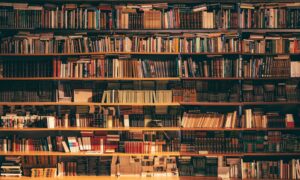It’s the fourth year running of Larger Us’s books of the year list! (Now it’s definitely a tradition.) As in previous years, we asked some of our favourite thinkers and doers on psychology and politics what they’ve most enjoyed reading this year, and added in a few recommendations of our own. Happy reading!
Lucy Holdaway, executive director, Local Storytelling Exchange – Demon Copperhead by Barbara Kingsolver. This book broke my heart and stitched it back together again. Its modern take on Dickens packs a heavy punch in its scathing analysis of corporations and their power over people, poverty, the failure of institutions… But it is Demon, the boy at the centre of the story, that I fell totally in love with. Demon’s imperfect survival and his reconstruction of hope and resilience is a kernel of beauty to take into the world.
James Gray, consultant clinical psychologist and LU board member – Much More to Come by Eleanor Mills. I am usually a bit immune to self-help style literature and only bought this to support a friend (the author). I actually read it cover to cover and felt that it succinctly covered a whole slew of universal issues around ageing, redefining oneself and preparing for the ‘third act’. Aimed at ‘queenagers’ (women in mid-life) but actually very good for men of all sexualities….
Ruth Taylor, narrative change consultant – Another Englandby Caroline Lucas.This one is for everyone who loves books about books and environmental and social justice! Caroline Lucas, former leader of the Green Party, knows more than most the importance of identity in shaping our collective responses to social and environmental challenges. In this book she takes the reader on a journey through England’s literary canon to explore the question of how a more compelling, radical and hopeful story of what it means to be English could be realised. At a time of rising national populism, where our national story often lends itself to exceptionalism, domination and the glory of the past, the work of building an alternative vision of Englishness feels so vital.
Bert Wander, executive director, Avaaz – The Wager by David Grann took me by surprise — I wasn’t expecting this tale of an 18th century shipwreck to feel so, well, modern. It is a gripping account of the human cost of great power conflict, the best and worst of humanity when faced with extreme adversity, and the resilience of hope when all seems lost, as well as an invitation into the messiness of piecing together the truth from conflicting accounts of the surviving sailors, who, facing court martial on their return to England, find their lives depend on being believed. The Wager is an absorbing work of narrative non-fiction, oddly relevant in our own uncertain moment of senseless conflict, human suffering, contested truth, and fragile – yet enduring – hope.
Elizabeth Oldfield, chair of Larger Us and author of Fully Alive – The Devil You Know by Dr Gwen Adshead and Eileen Horne . Gwen is this year’s Reith lecturer, and for good reason. An eminent forensic psychiatrist and psychotherapist, she has worked with violent offenders in secure units like Broadmoor. Deeply morally serious, her perspective – which brings empathy and a sense of shared humanity to people society rejects – is profoundly moving.
Alice Sachrajda, UK head of cultural strategy, Unbound Philanthropy – I absolutely loved Diana Beresford-Kroeger’s beautiful autobiography To Speak For The Trees. She weaves together the ancient Celtic wisdom she was taught as a child, combined with her academic expertise as a botanist and scientist. A passionate and compelling call to arms to recognise the role trees can play in saving our planet from climate change.
Hugh Knowles, former co-executive director, Friends of the Earth – Ways of Being by James Bridle. A revelatory exploration of intelligence, connection, and coexistence, which uses insights from technology, biology, and art to show how non-human intelligences—plants, animals, even AI—can teach us profound lessons about collaboration and care. One of the best books I have read in the last decade – beautifully written and profound.
Sophia Parker, director of emerging futures, Joseph Rowntree Foundation – The New Age of Empire by Kehinde Andrews. This book stopped me in my tracks. I opened it knowing that late-stage capitalism is hurting us all, but the analysis here brought a new depth to my understanding of the harmful origins of our current economic system. Colonial thinking and practice continues to shape all our lives today, whether we choose to acknowledge that or not.
Rachael Orr, executive director, Climate Outreach – The Art of Explanation by Ros Atkins. A brilliant ‘how to’ book that should be a must read for anyone who thinks about being a great communicator. Ros Atkins shot to fame making short video explainers for the BBC. This book lifts the lid on how. It’s packed with tips, examples and great stories from his reporting to help readers make all their comms as sharp and impactful as possible.
Claire Brown, head of development and impact, Larger Us – The Edible Woman by Margaret Atwood. A re-read of an old favourite for me. Atwood’s first novel was written in 1969 and feels as timely as ever. Fifty years down the line and women are still trapped between achieving the feminine ideal and discovering their true nature. It always thrills me to read the part when Marian McAlpin literally runs away from her painfully dull boyfriend and all that’s expected of her. Extra points also for the laundromat scene between Marian and the intriguing Duncan. One for those who want to resist life’s conveyor belt and forge their own path.
Turi Munthe, board member at LU – The Enigma of Reason by Dan Sperber and Hugo Mercier is the culmination of decades of research which shows that – far from the image of Rodin’s solitary Thinker – humans evolved to think together, in opposition to each other, through argument. At its heart, it’s an evolutionary defence of pluralism.
Kate Pumphrey, behavioural designer and founder of Social Gym – I first read Elizabeth Jane Howard’s Cazalet Chronicles in my teens, came back to them in my late twenties, and have just had another year of inhaling each and every one of the series of 5. The saga covers the lives of a large, well-to-do English family coping (and not coping) with the upheaval of the first and second World Wars. I find them immeasurably comforting, entertaining, and touching: escapism at its best. And when things are looking gloomy it’s good to be reminded just how bitingly cold English homes were not so long ago, not to mention how drab the food and terrible the healthcare…
Ben Margolis, campaign strategist and senior adviser at LU – The Boys in the Boat by Daniel James Brown. On the surface this is a book about the achievements of an unlikely group of young men from the North-West of the United States who came to dominate first the domestic, and then the international, rowing scene. The story rushes you along as you learn about the extraordinary obstacles and brutal circumstances that many of the men faced and the escape that rowing offered. Woven throughout the book as a dark undercurrent is the preparation for the 1936 Berlin games and insights into the remarkable Nazi propaganda machine and the compliance of the UK, the US and others in allowing Hitler to use the Games for his own horrific purposes.
Ayesha Saran, programme manager, Barrow Cadbury Trust and LU board member –The Last White Man by Mohsin Hamid is a compact, elliptical fable. Its protagonist, a white man called Anders, wakes one day to discover that his skin has turned a “deep and undeniable brown”. Hamid uses this surrealist conceit to explore the arbitrariness and absurdity of race as an invented social construct, avoiding reductive conclusions about who might be susceptible to prejudice in fractured and fractious times. Inspired by the author’s experiences post 9/11, this book resonated with me as someone with a mixed ethnic background who has experienced shifting perceptions and assumptions about my identity over time. But the novel is more than a high concept thought experiment. It is also a beautiful meditation on grief, love and family, and the hope the next generation can bring.
Liz Slade, chief officer, the Unitarians – Lowborn: Growing Up, Getting Away, and Returning to Britain’s Poorest Towns by Kerry Hudson. This book tells the story of its own writing, of the author turning to face the bleak and traumatic childhood she has successfully run away from. The story is one that is familiar to many people, but probably not the ones who get to read book lists like this one, and it’s powerful to hear it told first hand, not reading stats and case studies in a professional report on poverty. Lowborn is full of humanity and absorbs you into Hudson’s world as a child in the thick of it and as an adult grappling with her history.
Jon Alexander, co-founder, New Citizenship Project and author of Citizens –Tyson Yunkaporta’s book Right Story Wrong Story has to be the choice for me. It’s an occasionally hilarious, often brutal, always insightful view of the moment in time we’re living in through the lens of an Indigenous worldview – written with the intent to enable us all to see what we’ve been missing, blinded by the deep stories we live within.
Helen Meech, executive director, The Climate Coalition – One of my fave books this year has been Dreamland by Rosa Rankin-Gee. Set in a near-future Margate, this gripping coming-of-age story follows Chance, a teenage girl uprooted from London to a coastal town on the brink. Her family’s dream of a fresh start crumbles as work is scarce, every high tide brings relentless floods, and their new community faces increasing decay and isolation. Against a backdrop of loss, addiction, and ecological collapse, the novel captures resilience and hope, reminding us that even in the darkest times, there’s still everything to fight for.
Anthea Lawson, author, The Entangled Activist –I’m currently telling everyone I know to read a book that draws profound connections between our inner selves, our relationality, and the politics that we create together: Liberated to the Bone by Susan Raffo, which is published by adrienne maree brown’s Emergent Strategy Series at AK Press. A bodyworker from Minneapolis, Raffo introduces the lens of healing justice, which links the trauma and healing of individual bodies to the necessary healing of the collective body and the intergenerational wounds of supremacy and dominance. This politicised somatics is a rich physical thinking, utterly embodied, with plenty of challenge for anyone interested in collective psychology. “When we give our brains information about a thing without being deep in practice with it,” she warns, “it just gives us more tools and strategies to protect ourselves from change.”


